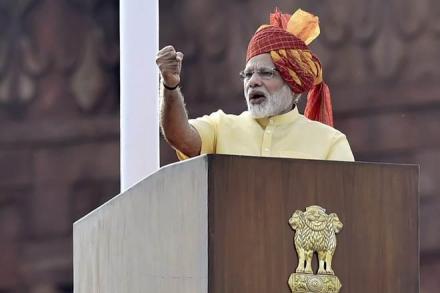UBS on 2019 Lok Sabha Elections: With the Lok Sabha elections scheduled to be held in May-2019, even as top market voices and political analysts discuss the chances of potential victors, global firm UBS says that most investors are assigning a ‘very high probability’ of Prime Minister Narendra Modi winning the next national elections, however, the stock markets have priced in a potential victory.
According to the report, Narendra Modi’s re-election as Prime Minister with a single-party majority underpins the market’s hopes, as reflected in rich stock market multiples. Further, the firm said in the client note that Modi winning the 2019 election is priced in and (will be) key to sustaining rich multiples.
According to a study conducted by the global financial services firm, UBS found that the market performance has been upbeat one-year before the elections since the year 1996, as the border Nifty-50 index gained four out of six times. “With the election still 12 months away, only one thing is clear: Uncertainty (either around the timing or party agenda),” UBS noted.
Apart from the national elections, UBS said that investors should track potential alliances of opposition parties as a ‘key pointer’. Further, emphasizing the impact of elections in the stock markets, UBS said that State election results in 2018 will also be a pointer for market sentiment. UBS also noted that potential media opinion polls in 2018 could be crucial for overall market sentiment.
In a recent report, UBS said that India’s medium-term potential growth is likely to be above 7 per cent, on the back of policy reforms, higher investments and stable global growth environment. In that report, UBS had said that GDP growth has improved in India owing to economic and institutional reforms undertaken by the Narendra Modi government such as implementation of the new indirect-tax regime GST, adoption of inflation targeting, the new bankruptcy code, financial inclusion, improvement in ease of doing business, measures to curb ‘black money’, and also encouraging digitalisation among others.
